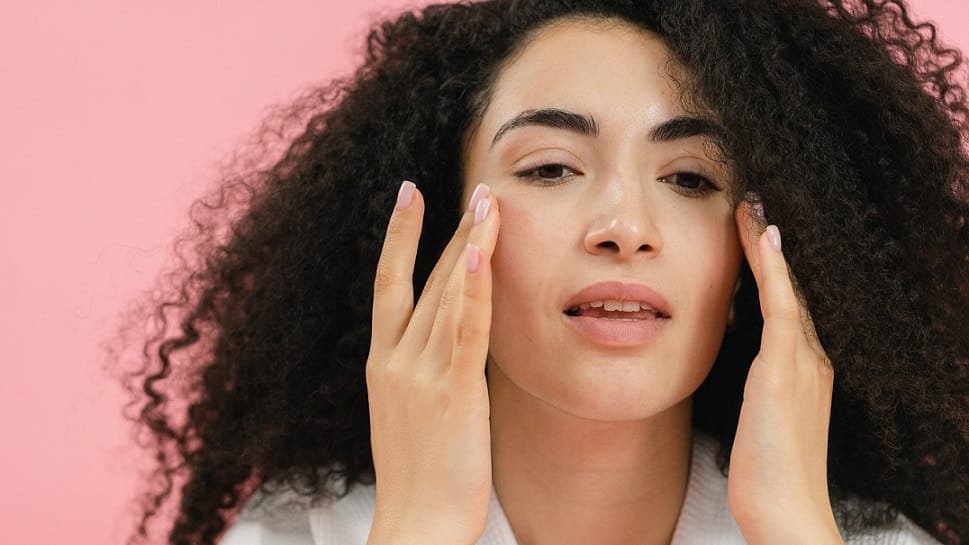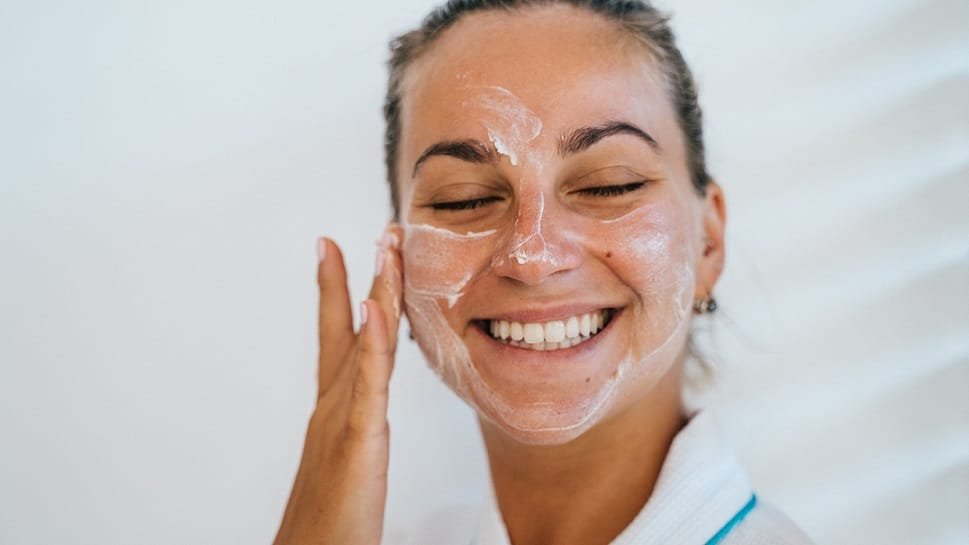Skin and Hair Care During Perimenopause
Perimenopause, the transitional phase leading up to menopause, can bring about significant hormonal changes that affect various aspects of health, including skin and hair. Women may experience dryness, increased sensitivity, and changes in texture as estrogen levels fluctuate. Understanding how to care for your skin and hair during this time is essential for maintaining a healthy appearance and boosting your confidence. Given below are practical tips and strategies for nurturing your skin and hair care during perimenopause.
Understanding the Changes
Before diving into skin and hair care during perimenopause routines, it’s important to understand what happens during perimenopause. The decline in estrogen levels can lead to:
- Skin Changes: Decreased collagen production can result in dryness, wrinkles, and a loss of elasticity. Skin may become more sensitive or prone to redness.
- Hair Changes: Hormonal shifts can lead to thinning hair, increased hair loss, and changes in hair texture, making it more brittle or frizzy.
By recognizing these changes, you can adopt targeted strategies to address them effectively.
Skincare Tips for Perimenopause
Hydration is Key
As estrogen levels drop, skin may become drier and less supple. To combat this, focus on hydration:
- Use a Gentle Cleanser: Opt for a hydrating, sulfate-free cleanser that won’t strip your skin of its natural oils.
- Moisturize Daily: Choose a rich moisturizer containing ingredients like hyaluronic acid or glycerin to lock in moisture. Apply it while your skin is still damp to enhance absorption.
Incorporate Antioxidants
Antioxidants help protect the skin from environmental damage and promote a healthy complexion:
- Vitamin C: Incorporate a vitamin C serum into your routine to brighten skin, even out tone, and stimulate collagen production.
- Vitamin E: This powerful antioxidant can help soothe dry skin and protect against damage from UV rays.
Sun Protection
Increased sensitivity and the risk of sun damage make sun protection crucial:
- Broad-Spectrum SPF: Use a broad-spectrum sunscreen with at least SPF 50 every day, even on cloudy days. Look for formulations that are hydrating and suitable for your skin type.
- Protective Clothing: Consider wearing hats and protective clothing when outdoors for extended periods.
Consider Hormonal Treatments
For some women, hormone replacement therapy (HRT) may be an option to alleviate skin changes associated with perimenopause. Consult with a healthcare provider to discuss potential benefits and risks.
Hair Care Tips for Perimenopause
Choose the Right Shampoo and Conditioner
As hair becomes thinner and more brittle, selecting the right products is essential:
- Sulfate-Free Shampoo: Use a gentle, sulfate-free shampoo to avoid stripping your hair of its natural oils. Look for products designed for thinning hair.
- Moisturizing Conditioner: Choose a hydrating conditioner that nourishes and strengthens your hair, helping to reduce breakage.
Limit Heat Styling
Excessive heat can worsen hair damage, especially during perimenopause:
- Reduce Heat Usage: Try to limit the use of hair dryers, straighteners, and curling irons. Embrace natural styles whenever possible.
- Heat Protectants: If you must use heat styling tools, apply a heat protectant spray to minimize damage.
Embrace Hair Treatments
Incorporating regular treatments can help restore moisture and strength:
- Deep Conditioning Masks: Use a deep conditioning treatment or hair mask once a week to provide intense hydration and repair.
- Scalp Care: A healthy scalp promotes healthy hair growth. Consider using scalp treatments that include essential oils like rosemary or peppermint to stimulate circulation.
Maintain a Balanced Diet
What you eat can significantly impact the health of your hair:
- Nutrient-Rich Foods: Incorporate foods rich in vitamins and minerals, such as leafy greens, nuts, seeds, and fatty fish. These nutrients support hair strength and overall health.
- Stay Hydrated: Drink plenty of water to keep your hair and skin hydrated from within.
Consider Supplements
Consult with a healthcare provider about supplements that may support hair health:
- Biotin: Often recommended for hair growth, biotin can help strengthen hair and reduce brittleness.
- Omega-3 Fatty Acids: These essential fats can help nourish the scalp and promote healthy hair growth.
Lifestyle Changes for Overall Well-Being
In addition to skincare and hair care, adopting healthy lifestyle habits can make a significant difference during perimenopause:
Manage Stress
Stress can exacerbate skin and hair issues, so it’s crucial to find effective ways to manage it:
- Mindfulness and Meditation: Practice mindfulness techniques such as meditation, deep breathing, or yoga to reduce stress levels.
- Physical Activity: Regular exercise not only boosts mood but also improves circulation, which can benefit your skin and hair.
Get Adequate Sleep
Quality sleep is vital for overall health, including skin and hair:
- Establish a Sleep Routine: Aim for 7-9 hours of sleep each night. Create a calming bedtime routine to signal to your body that it’s time to wind down.
Stay Connected
Building and maintaining social connections can improve your mental well-being:
- Support Networks: Engage with friends, family, or support groups. Sharing experiences and feelings can provide emotional support and reduce feelings of isolation.
Be Kind to Yourself
Acknowledge that changes during perimenopause are a natural part of life. Practice self-compassion and allow yourself grace during this transitional time:
- Celebrate Small Wins: Recognize and celebrate small victories in your skincare and hair care routines. This positive reinforcement can enhance your overall mood.
Conclusion: Skin and Hair Care During Perimenopause
Taking care of your skin and hair during perimenopause is not just about maintaining appearance; it’s also about nurturing your overall well-being. By understanding the changes your body is going through and adopting targeted skincare and hair care routines, you can embrace this phase with confidence and grace.
Remember to prioritize hydration, nourishment, and self-care, and don’t hesitate to seek professional guidance when needed. Embrace this new chapter of life with the knowledge that you deserve to look and feel your best at every stage.
Learn essential tips for Skin and Hair Care During Perimenopause to combat dryness, sensitivity, and hair changes. Embrace confidence with tailored care





1 thought on “Taking Care of Your Skin and Hair During Perimenopause: A Comprehensive Guide”